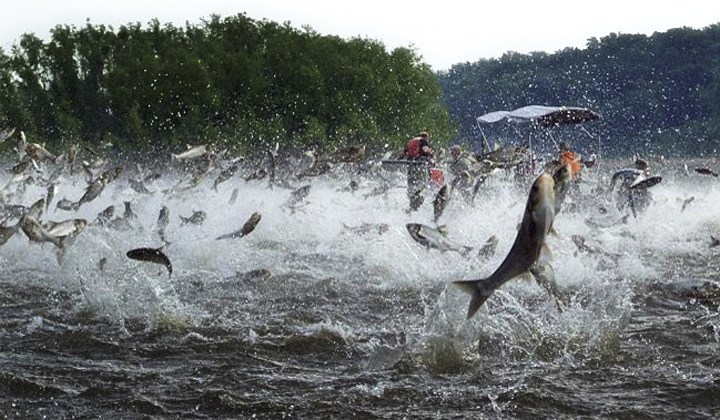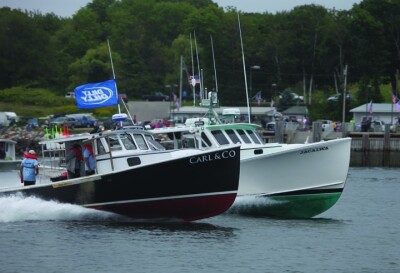Can’t Beat ’Em, Eat ’Em campaign aims to market invasive species as silverfin
Along the Mississippi River, fishermen and chefs are heading an effort to rid the ecosystem of invasive bighead and Asian silver carp the only way they know how — catching and eating them.
The two species were introduced to fish farm ponds in the central Midwest in the 1970s to clean murky pond water. Flooding allowed their escape into rivers, where they have reproduced in the wild and are outcompeting native species.
Louisiana Chef Philippe Parola has been expressing concern for native species of fish in Louisiana for years, worried about how shrimp, oyster, blue crab and other finfish that rely on plankton-rich waters could be destroyed by a sizable Asian carp population.
Parola has been on a campaign to convince officials in Louisiana and Illinois to support the Can’t Beat ‘Em, Eat ‘Em effort to rebrand Asian carp as silverfin for marketing purposes.
“Asian carp has incredibly complex bone structure, which makes it very difficult to clean. People mistakenly think it is a ‘trash fish,’ but it is not,” said Parola. “One thing we know how to do in Louisiana, and to do extremely well, is cook.”
The bone-riddled fish is currently being sent to Vietnam for bone removal before being returned to the United States to be sold to restaurants, educational institutions and grocery outlets.
“Asian carp will be very profitable for the commercial fishermen at current prices,” said Louisiana fisherman Richard Durrett, who has been working to bring the fish to market. “The Atchafalaya and Mississippi River is overflowing with the fish. In four hours I can easily catch more than 47,000 pounds.”
The Illinois Department of Commerce and Economic Opportunity is set to review details for two possible sites for silverfin processing plants, and Sysco has expressed interest in distributing the fish nationwide.







